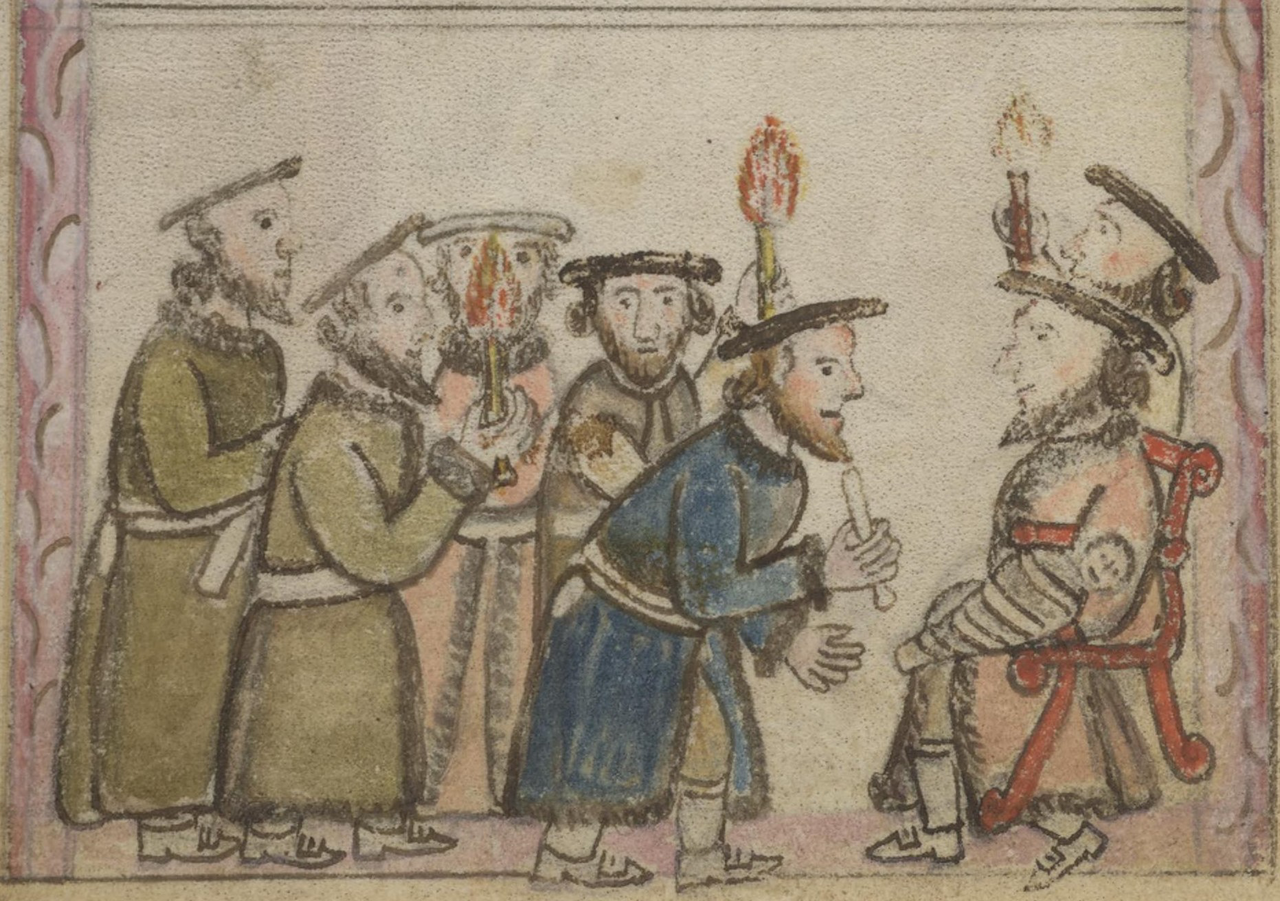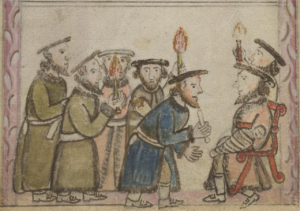This is an archive of prayers offered at the primary life cycle ritual for infants.
⤷ You are here:
🖖︎ Prayers & Praxes —⟶ 🌳︎ Life cycle —⟶ Jewish Life Cycle —⟶ Brit Milah & Simḥat Bat 📁 Bnei (Bar/Bat) Mitsvah & Other Birthday Prayers :: (Next Category) 🡆 Brit Milah & Simḥat BatThis is an archive of prayers offered at the primary life cycle ritual for infants. Filter resources by Collaborator Name Yoni Ashar | David ben Yishai (traditional attribution) | Marcus Heinrich Bresslau | Aryeh Cohen | Estampado por Ǧ. Griffit | Lisa Exler | Chajm Guski (German translation) | Joshua Gutoff | David Zvi Kalman | Benjamin Kamm | Elie Kaunfer | Anna Lachmann | Isaac Gantwerk Mayer (translation) | Wolf Mayer | Yehoshua Heshil Miro | Lilian Helen Montagu | Andreas Rusterholz (transcription) | Dovi Seldowitz | the Shalom Center | David Silber | Devora Steinmetz | Unknown | Aharon N. Varady (transcription) | Aharon N. Varady (translation) | Arthur Waskow Filter resources by Tag Al haShminit | Atah Hu | אז ישיר Az Yashir | baby daughters | ברית brit | brit milah | ceremony | circumcision | dairy foods | English vernacular prayer | female | German Jewry | German vernacular prayer | הדר Hadar | infants | Izmir | Jewish Women's Prayers | Ladino Translation | לכה דודי Lekhah Dodi | masculinity | מזמור Mizmor | naming | naming ceremonies | Needing Proofreading | Needing Vocalization | North America | Nusaḥ Ashkenaz | Ottoman Empire | Ottoman Jewry | parent | Parents blessing children | פיוטים piyyuṭim | Pnai Or | prayers concerning children | Prayers on behalf of children | תהלים Psalms | Psalms 12 | Renewal | פרשת וזאת הברכה parashat vZot haBrakhah | שבועות Shavuot | שירת הים Shirat haYam | שמחת בת simḥat bat | soporifics | תחינות teḥinot | Teḥinot in German | Torah as milk | traditional egalitarian | 19th century C.E. | 20th century C.E. | 21st century C.E. | 56th century A.M. | 57th century A.M. | 58th century A.M. Filter resources by Category Filter resources by Language Filter resources by Date Range Resources filtered by COLLABORATOR: “Aryeh Cohen” (clear filter) Sorted Chronologically (old to new). Sort most recent first? In the weeks leading up to the birth of our first child in 1997, my partner and I spent a lot of time thinking about the brit. Whether it was a boy or a girl we knew that we would have a celebration. If it was a boy we would have a brit, yet we were not happy with the ceremony as it stood. If it was a girl we needed a ceremony which was equally powerful and yet didn’t draw blood. In response to these two concerns I wrote a liturgy for what I called a chag hachnassah labrit/celebration of entering the covenant which could be easily adapted to boys and girls, and I wrote a piyyut (a liturgical poem) for a milah/a circumcision. . . . Categories: Tags: Contributor(s): This is a piyyut (liturgical poem) which is intended to be recited at a brit. It is connected to my liturgy for a “chag hachnassah labrit” (available here). The explanation for the chag is also the basis for the piyyut. Translation into English by Shoshanna Gershenson, Maeera Schreiber and Aryeh Cohen. . . . Categories: Tags: 21st century C.E., 58th century A.M., brit milah, circumcision, לכה דודי Lekhah Dodi, North America, פיוטים piyyuṭim Contributor(s):
Stable Link:
https://opensiddur.org/index.php?cat=391
Associated Image: 
Brit Mila. This illustration comes from f. 5r of Sefer Ot haBrit, an 1824 gift from a certain Jonah Quo, rabbi, to Ezekiel Treich, mohel of Lipník nad Bečvou. (This image is set to automatically show as the "featured image" in shared links on social media.)
Terms of Use:
Be a mentsch (a conscientious, considerate person) and adhere to the following guidelines:
Additional Notes:
Support this work:
The Open Siddur Project is a volunteer-driven, non-profit, non-commercial, non-denominational, non-prescriptive, gratis & libre Open Access archive of contemplative praxes, liturgical readings, and Jewish prayer literature (historic and contemporary, familiar and obscure) composed in every era, region, and language Jews have ever prayed. Our goal is to provide a platform for sharing open-source resources, tools, and content for individuals and communities crafting their own prayerbook (siddur). Through this we hope to empower personal autonomy, preserve customs, and foster creativity in religious culture.
ויהי נעם אדני אלהינו עלינו ומעשה ידינו כוננה עלינו ומעשה ידינו כוננהו "May the pleasantness of אדֹני our elo’ah be upon us; may our handiwork be established for us — our handiwork, may it be established." –Psalms 90:17
| ||
Sign up for a summary of new resources shared by contributors each week
  |
